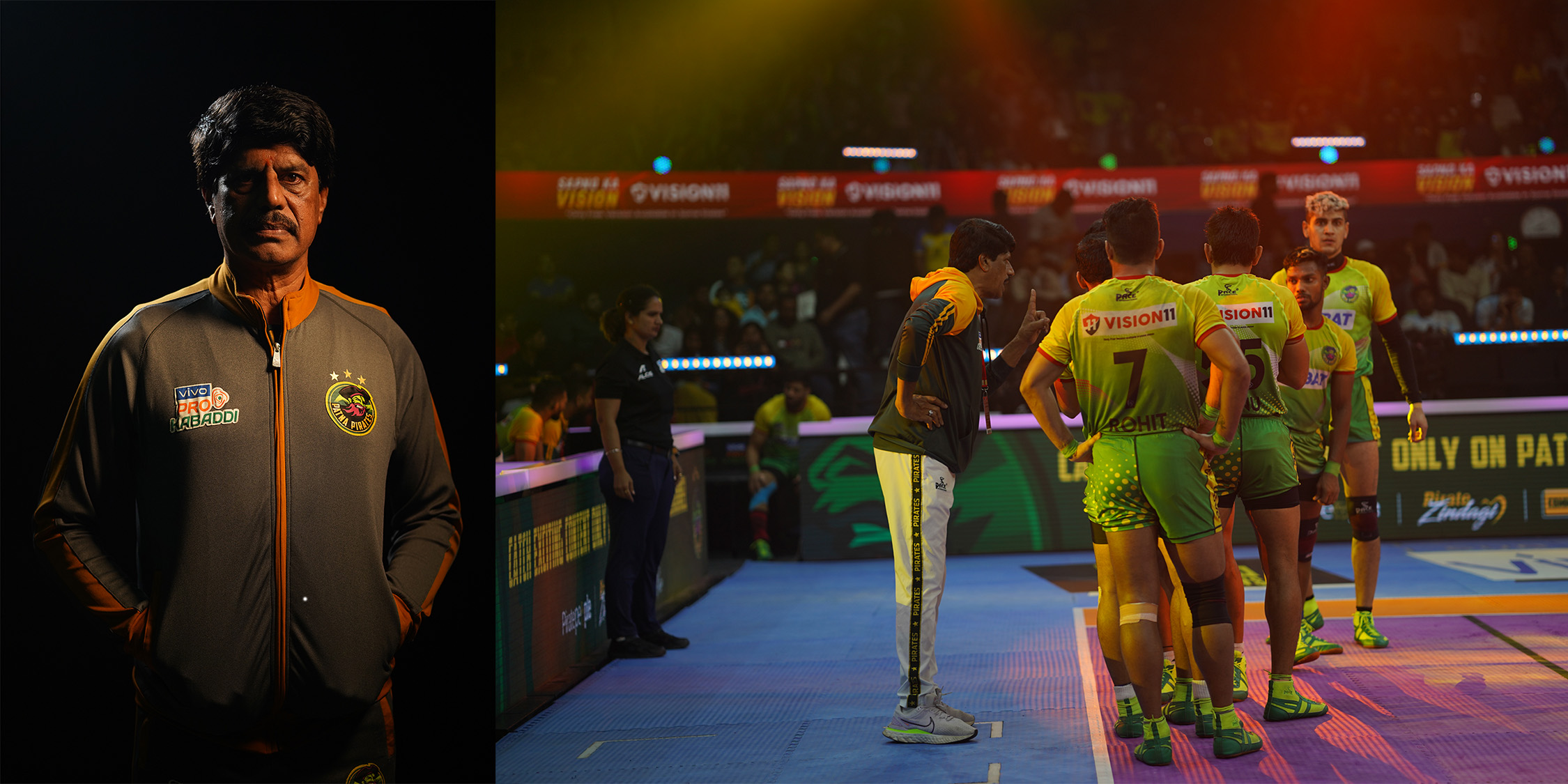NEW DELHI: A technical expert, who once served the Indian defence forces, wants to shape the ancient game of kabaddi in such a style that Indians will forget cricket in a decade’s time. It has not happened yet, and Indians continue to consider cricket their religion.
But Ravi Shetty, who retired from the office of the Bengaluru-based Defence Quality Control and then travelled to Punjab to get trained at the Patiala-based National Institute of Sports (NIS), says it will happen and kabaddi will one day outrun, outsmart cricket.
And he says he is not day-dreaming. He calls kabaddi and cricket the perfect example of the hare and tortoise race.
He says there is enough swag in this rural sport that has now changed its format, telecast on a Rupert Murdoch channel and has players stretching from Kenya to Iran.
This is indeed mind boggling.
“Kabaddi is growing very fast all over India, hordes are coming to enrol in teams which have mushroomed across the country. It is no longer a rural game,” Ravi Shetty, top coach of Patna Pirates, said in an interview.
The Pirates are the most successful team in the history of Pro Kabaddi League (PKL), which has commentators who once prided themselves in covering top class football and cricket matches. Out of eight editions of the league, the Pirates won the third, fourth and fifth editions.
“We haven’t done well this year; we are languishing at 11th standings but will come back next year with a bang because we will have many young players. And that will be our turning point. This year the mix and match of the players just did not work for the team,” says Shetty.
Pirates were the losing finalists last year.
So how did this transformation happen in a game that was once played in the villages on muddy surfaces? Shetty says the game got some decent cash—not anywhere near cricket—and a great broadcasting partnership with Star Sports.
Now the game is played on an artificial mat inside sardine-packed air-conditioned stadiums, unlike the ancient game that originated on open grounds near a temple where bare-chested and barefoot players would pray before the start of the match on sloshy, rain-drenched mud. And then they would hold their breath, muttering the words kabaddi, kabaddi, kabaddi, kabaddi. The mission is simple: Walk into the rival zone, touch a player and rush back to the safety of your zone.
It was considered a dusty game of the underclass. The game is said to be 4,000 years old.
Now the game is shaped in a T20 cricket format. And there is rock and roll music, cheerleaders, smoke machines, disco lights, and Bollywood stars like Aishwarya Rai and her husband Abhishek Bachchan all recasting the once rustic game for India’s burgeoning middle class.
“Kabaddi has got a new life, it is being reshaped and reimagined by the producers. I would say this is like a cultural revival of the game. Now kabaddi has turned cool, it has got a style statement,” says Shetty.
And it has got the big names.
In the opening and the finals of the pro show, the family of Mukesh Ambani cheered their favourite team. They carried flags and even took selfies with fans. About 426 million people watched the games over 36 days. That was the first episode. Now, every year, almost 200 million viewers in almost 100 countries watch the Pro Kabaddi League (PKL). Teams from 12 countries—India, Iran, Bangladesh, Thailand, the United States, Australia, Japan, South Korea, England, Poland, Kenya, and Argentina—competed in the first edition.
And now there is no looking back.
“I just announced that I want to start a kabaddi academy. More than 600 enrolled within days. I was amazed. The game is growing in the big cities, also in the small towns. It is like a revolution,” says Shetty.
He says TV kabaddi is different because players wear shoes and are asked to keep their weight below 86 kg. And then, the player needs the skills of a footballer, rugby player, wrestler and athlete all rolled into one. But it is working. Thanks to the league, many players do not want jobs but fame on television and high fees.
“They consider themselves stars, new heroes of a new world,” says Shetty.
Shetty reminds me about the game that largely remained neglected in India. Kabaddi was introduced in the Asian Games in 1990, and India has won gold each time. And then, non-resident Indians (NRIs) in the US, Britain and Canada organised kabaddi tournaments, but these did not cut much ice. To be honest, the game is still largely unknown outside of South Asia. But it is changing.
“Now you see what is happening, the top team takes home a whopping $85,000. Once, they would get goats and utensils and wooden shields,” laughs Shetty. It’s become a super-duper hit, and the ratings are going high year after year. People are crazily lining up to buy tickets and there are billboards all over the venues.
He again returns to his team, Patna Pirates. He says it is sad that the team messed up but this is not the end of the road and the next year will be a big-bang one. “I would expect our fans to bear this loss and bear with us and then see us in a new avatar next year.”
Shetty knows his game. He has been a kabaddi coach for over two decades at the state, national and international levels. He has also coached in the past the Malaysian national team and was also the head coach of U Mumba that won the summit title of PKL in 2015.
The fans are waiting. Why not? In a decade, this rural sport has turned sexy and gone international.
Former Army man says drop cricket, play kabaddi instead
- Advertisement -

